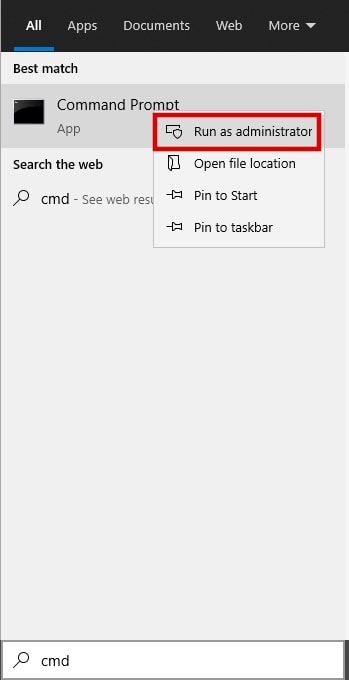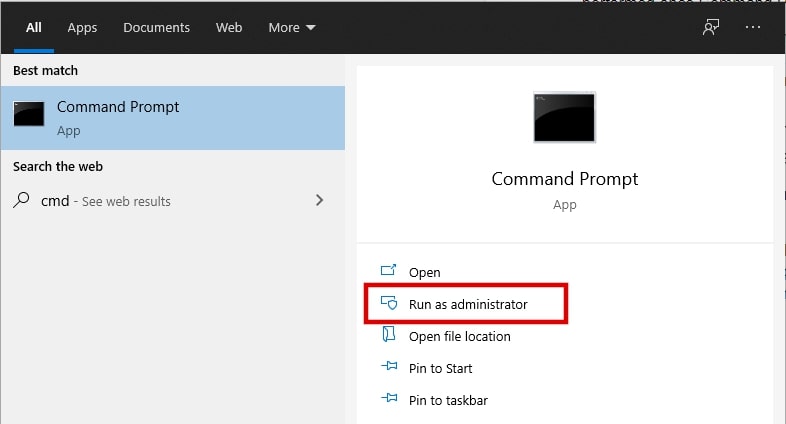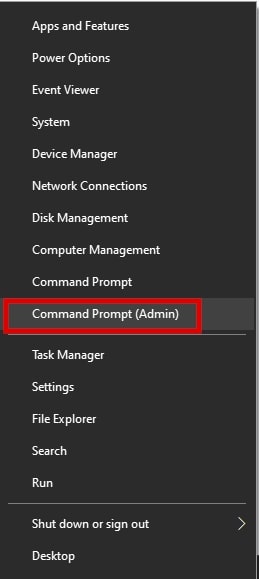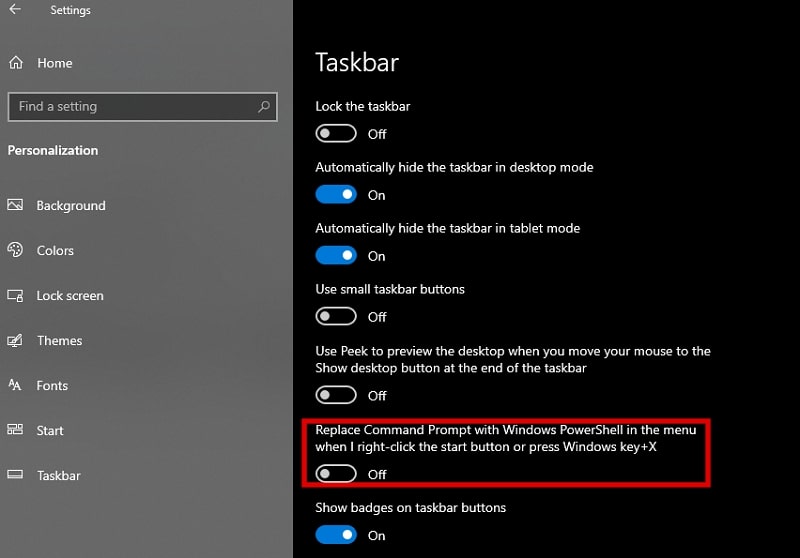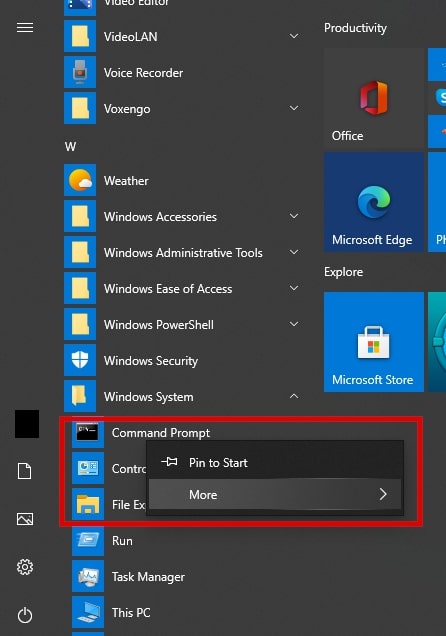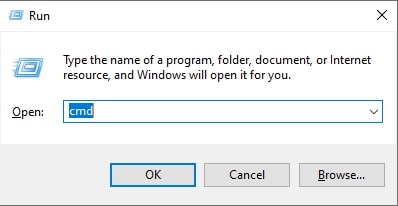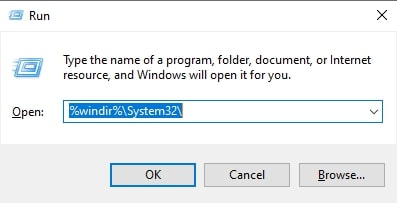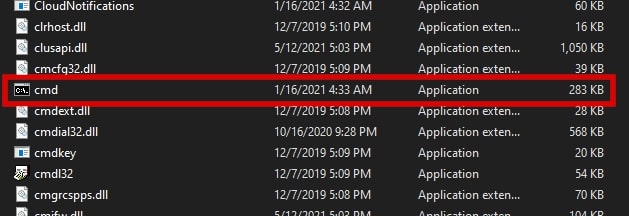Likely, most Windows 10 users will never have a need to open Command Prompt, let alone as an administrator. Some may not even know how to run Command Prompt as an administrator on Windows 10. However, certain tasks can only be performed once Command Prompt has been given elevated privileges.
Depending on the task required, you might receive an error or “Access Denied” when attempting to enter a command within Command Prompt. Thankfully, Windows 10 offers multiple ways in which a user can open Command Prompt as an admin.
Read More: How to Open Command Prompt on Windows 10 (Normal Way)
Method 1. Run Command Prompt As Administrator on Windows 10 Using Taskbar Search Bar
Step 1. Type cmd or command prompt into the search bar on the lower left of the desktop screen.
Step 2. In the “Best Match” pane, right-click Command Prompt app, and select Run as administrator from the pop-up window.
You can also highlight the Command Prompt app in the left pane and click Run as administrator in the right pane.
Method 2. Run Command Prompt As Administrator on Windows 10 From The Win+X Menu
Step 1. Press the Win + X keys simultaneously, or right-click the Windows logo located at the bottom left of the desktop to pull up the menu.
Step 2. From the menu, click the Command Prompt (Admin) option.
Depending on the defaults of your Windows 10 computer, you may not have the Command Prompt (Admin) option available to you. If this is the case, navigate to Settings > Personalization > Taskbar. Here, toggle off the option to Replace Command Prompt with Windows PowerShell in the menu when I right-click the Start button or press Windows key + X.
Method 3. Run Command Prompt As Administrator On Windows 10 From The Start Menu
Step 1. Click the Windows logo button at the lower left of the desktop screen to pull up the Start menu.
Step 2. Scroll down the list of apps in the menu until you locate the Windows System folder.
Step 3. Expand the folder to discover Command Prompt from the drop-down options.
Step 4. Right-click Command Prompt, click More, then select Run as administrator.
Step 5. At the User Account Control screen, click Yes.
Method 4. Run CMD As Administrator On Windows 10 Using The Run Command Box
Step 1. Launch the Run command by pressing the Win + R keys simultaneously.
Step 2. Type cmd into the box, then press Ctrl+Shift+Enter keys simultaneously to open Command Prompt as admin.
Step 3. At the User Account Control screen, click Yes.
Method 5. Run CMD As Administrator On Windows 10 From File Explorer
Step 1. Like in the last method, press Win+R keys simultaneously to launch the Run command.
Step 2. Type %windir%\System32\ into the box and press Enter. This will open the System32 folder.
Step 3. Locate and right-click the cmd.exe file, then select Run as administrator option. If you cannot find the file that shows as cmd.exe, make sure to acknowledge that it is an Application type.
Step 4. At the User Account Control screen, click Yes. It’s also possible that you may need to enter the admin account password instead.
Frequently Asked Questions Of Running Command Prompt As Administrator on Windows 10
What Is The Purpose Of Running Command Prompt As Administrator On Windows 10?
Introduced with Windows Vista, the elevated command line, elevated command prompt, or elevated mode allows the user to execute commands with administrative privileges. Full administrative rights are not afforded to a user by default. This can often render many commands to prompt you with some sort of an error message.
The command prompt as administrator mode was created to prevent any user or program from compromising the computer with potentially harmful commands.
How Do I Know If Command Prompt Has Been Launched As Administrator in Windows 10?
When the Command Prompt has been launched in Windows 10 as an administrator, the Administrator text will appear inside of the title bar.
What Are The Negatives To Not Run Command Prompt As Administrator On Windows 10?
There are some commands and programs which require elevated permissions to run properly. Without them, you could find yourself staring at an error message. The SFC command is one such command that requires an elevated mode. Without elevated permissions, the SFC command will not run and results in an error message.
Conclusion
The information provided in this article should be adequate enough for you to access command prompt as admin on Windows 10 in multiple ways. Other methods are possible, but we felt that these provided the best and easiest ways on how to open command prompt as an administrator.
